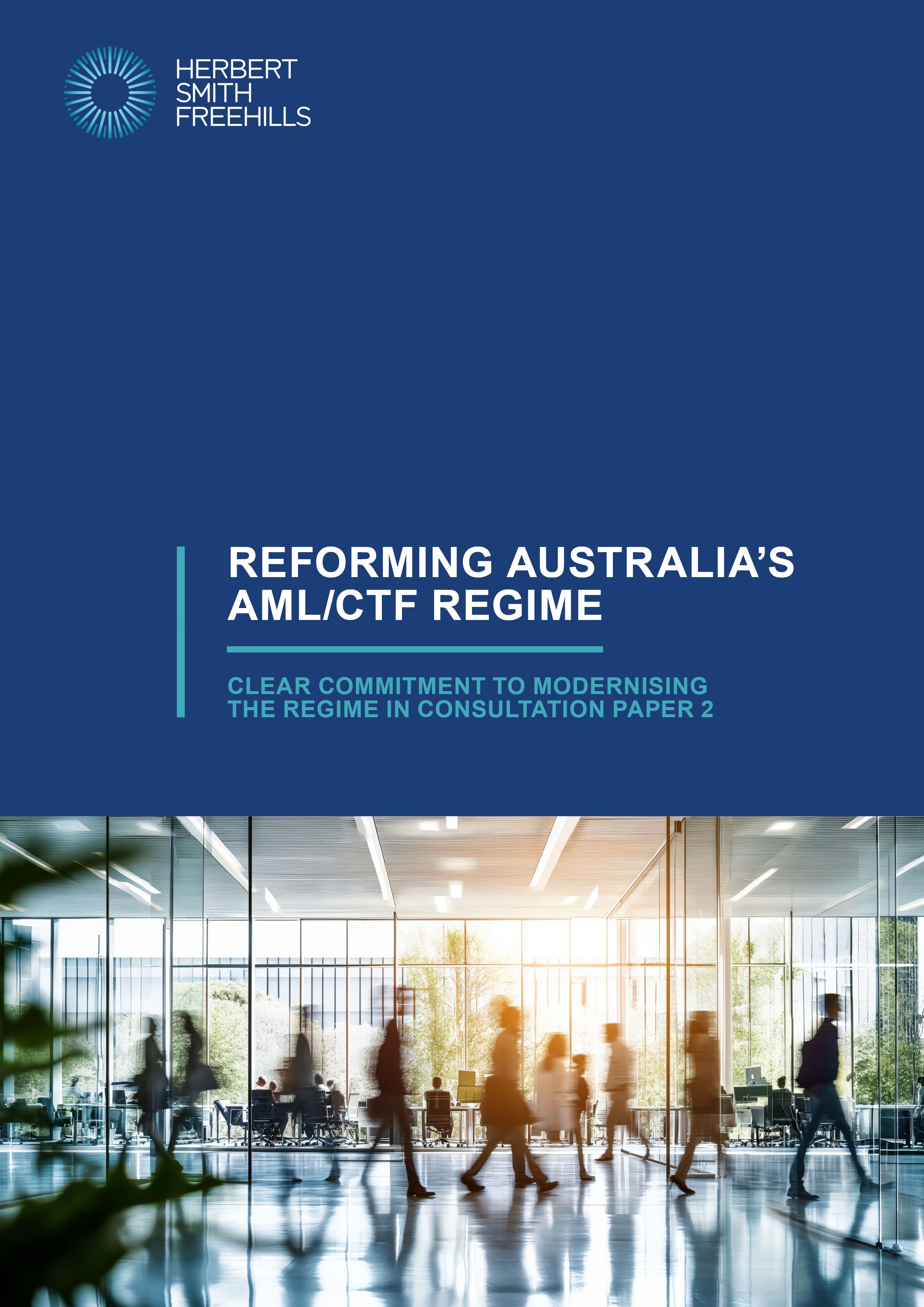Following the release of the Consultation Paper on Modernising Australia’s anti-money laundering and counter-terrorism financing (AML/CTF) regime in April 2023 (Consultation Paper 1), there was real excitement about the possibility for Australia’s AML/CTF regime being updated for the better. Our thoughts on Consultation Paper 1 are available here.
The 142 submissions received by the Attorney General’s Department on Consultation Paper 1 reflect the widespread interest from stakeholders in ensuring that the AML/CTF regime is developed in a way that addresses uncertainty, inefficiencies and ensures that Australia has a regulatory regime that is fit for the purpose of deterring money laundering (ML) and fighting terrorism financing (TF).
The wait for further materials following Consultation Paper 1 led to a concern that the opportunity to modernise and simplify the AML/CTF regime may be lost. However, the release of the second Consultation Paper on 2 May 2024 (Consultation Paper 2), has reiterated the Attorney General’s Department’s commitment to a broader reform of Australia’s AML/CTF regime.
In this paper we explore the reforms that we expect to be of most importance to financial institutions. These include:
- the redesign of the legislative framework around risk assessments and AML/CTF Programs;
- the re-write of customer due diligence (CDD) requirements, including the introduction of a specific obligation to undertake customer by customer risk assessments before providing any designated service;
- introducing the concept of a 'value transfer service' to replace the concepts of 'electronic funds transfer instruction' and 'designated remittance arrangement,' and extending the concept of 'value' to include 'digital assets' (not just money and property);
- extending the travel rule, including so that it applies to all entities in the 'value transfer chain' and also imposes obligations on remittance service providers and digital asset service providers;
- streamlining the international funds transfer instruction (IFTI) reporting requirements;
- reforming the tipping off offence and the exemption mechanism that applies for supporting law enforcement with investigations of serious offences; and
- updating the definition of bearer negotiable instruments.
Key contacts
Legal Notice
The contents of this publication are for reference purposes only and may not be current as at the date of accessing this publication. They do not constitute legal advice and should not be relied upon as such. Specific legal advice about your specific circumstances should always be sought separately before taking any action based on this publication.
© Herbert Smith Freehills 2025
Stay in the know
We’ll send you the latest insights and briefings tailored to your needs








